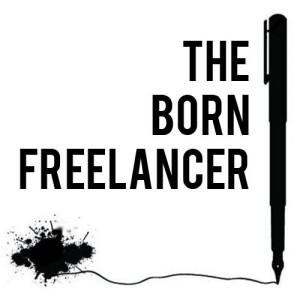Back to School: The ABC’s of CBC Freelance Contracts
There are actually A’s, and B’s, and C stands for Copyright in a typical CBC Freelance Contributor Contract, but I’ll get to those in a bit.
With the new broadcast season, more local and national programs, radio, TV or digital, will be engaging freelancers to provide material for their shows in the form of interviews (some with recordings, some not), documentaries, columns, photographs, and research or writing, especially for digital purposes.
Quite often I’ve found both freelancers and the people commissioning them don’t understand the contracting process, and inevitably this results in confusion, and unfortunately the confusion often leads to the freelancer getting paid less than the minimum amounts guaranteed in the CBC-Canadian Media Guild collective agreement.
If CBC wants you to do something for them, don’t be afraid to ask for a contract up front that specifies exactly what it is you’re going to do and what the pay rate is. If a contract isn’t forthcoming, make sure you get it in an email.
Freelance Contributor Contract
Webinar: Twitter for Journalists
With over 328 million active users and over 500 million tweets published each day, Twitter has become a critical business tool. Yet many individuals and businesses still struggle to find ways to integrate Twitter into their marketing strategy.
If you’re wondering whether you’re getting the most out of Twitter, register for our upcoming webinar with Katt Stearns.
“Twitter for Journalists: 8 Strategies to help you connect and expand your reach” is scheduled for Thursday, September 14th at 3:00 p.m. ET.
The webinar will cover key strategies and techniques for media workers to get the most out of Twitter, including strategies to boost your profile that you can start applying right away.
Katt Stearns is the founder of Katt Stearns Consulting. She has worked with numerous small and medium-sized organizations to develop marketing strategies that help them share their stories and grow their organizations. Katt is the recipient of the 2015 Canadian Digital Marketer of the Year Award and previously hosted a webinar on Facebook for journalists for CWA Canada associate members and CMG Freelance.
You can register for the webinar at this link. CMG Freelance and CWA Canada Associate Members can use their membership numbers to register. For a limited time, CMG Freelance is making live viewing of our webinars available to non-members. If you’d like to watch this one, you can use the special code “Storyboard” in place of a membership number.
Archived webinars are available for viewing by CMG Freelance and CWA Canada Associate Members on this members-only page on the CMG Freelance website. Subjects of previous webinars include financial planning, social media and cyber security for freelancers.
Students, volunteers and emerging media workers can sign up for a free CWA Associate Membership right here.
For information about the price and benefits of CMG Freelance membership check out the CMG Freelance website.
The Born Freelancer on Getting Names Right
This series of posts by the Born Freelancer shares personal experiences and thoughts on issues relevant to freelancers. Have something to add to the conversation? We’d love to hear from you in the comments.
Names possess almost magical power unlike any other words.
Used correctly, they can help foster confidence, trust, empathy and credibility.
Incorrect use can be catastrophic.
Remembering and getting names right is a necessary facility for any professional freelancer.
When to get it right
The simple answer is, always!
People are very invested in their own name. They like to hear it. The more you can use their name appropriately in conversation the better for you. It’s such a simple thing but how many of us claim to be “bad” at names? Get over it. There is no point in making this business harder than it already is.
Remembering and correctly using someone’s name won’t help you if you lack talent and minimal social graces. But for the rest of us it’s a useful ability, especially when establishing new contacts.
First names should be exchanged, I think, amongst individuals engaged in casual conversation for more than a few minutes. (It says, in effect, I like you and respect you and I ask the same from you). Too early and it seems presumptuous. Too late and it seems embarrassing to ask.
Off The Wire: News for the Canadian media freelancer August 29-Sept 5
Once a week, we gather stories about the media business, journalism, writing, publishing, and freelancing—with a Canadian focus—and share them in Off the Wire. Who needs a water cooler?

From Canada:
- Globe and Mail axes Tabatha Southey, Leah McLaren [Canadaland]
- Malahat Review Open Season Awards submissions now open [Malahat Review]
- Free speech groups speak out against assault of journalists in Quebec City [J-Source]
From The U.S. and beyond:
- Tip: Why hiring local freelancers can be beneficial to your news organisation [Journalism.co.uk]
- 8 tips for working with clients from long distances [Freelancers Union]
- Unmotivated? These 6 Tips Will Help You Jump Start Your Freelance Grind [Mediabistro]
- 4 Ways to Track Down Expert Sources for Your Next Article [The Write Life]
- Rethinking the dangers women journalists face [New York Times]
- Why is it so hard for foreign journalists to break into U.S. and European outlets? [Open Notebook]
- 6 tips for creating a social media presence that works [Freelancers Union]
- The Guardian launches a nonprofit to fund its journalism [Digiday]
Recently on Story Board:
- Journalism interns — Share your experiences: Did you work as a journalism intern in Canada or the United States between 2013 and 2017? Researcher Errol Salamon would like to hear about your experiences for a textbook on labour issues facing media workers in North America…
Spot a story you think we should include in next week’s Off the Wire? Email the link to editor@thestoryboard.ca or tweet us at @storyboard_ca.
Journalism Interns: Share Your Experiences
Did you work as a journalism intern in Canada or the United States between 2013 and 2017? Researcher Errol Salamon would like to hear about your experiences for a textbook on labour issues facing media workers in North America.
Salamon is the work and labour editor of J-Source, and a visiting research scholar at the University of Pennsylvania. He’s creating the textbook and accompanying curriculum materials for use in college and university journalism, communications, media studies, cultural studies, sociology, and labour studies classes in Canada and the United States.
If you’re interested in participating in his research, your identity will be kept confidential. Your responses will become part of a book-length account of the working conditions and labour issues facing North American media workers, including interns, freelancers, and digital media workers.
Salamon is interested in hearing about what was beneficial and what could’ve been improved about your journalism internships. Willing subjects are asked to complete this short introductory questionnaire. Once you’ve completed the survey you’ll be contacted to set up a time for a short phone interview.
This project is supported by CWA Canada, the Canadian Media Guild’s parent union. It aims to raise awareness about media workers’ rights and determine best practices for quality journalism in a digital age.
Off The Wire: News for the Canadian media freelancer August 22-28
Once a week, we gather stories about the media business, journalism, writing, publishing, and freelancing—with a Canadian focus—and share them in Off the Wire. Who needs a water cooler?
- Announcing the Jack Layton Journalism for Change Fellowship [Rabble]
- Print distribution of the Globe and Mail coming to an end in Atlantic provinces [J-Source]
- A guide to Canadian literary magazines and journals open to submissions [CBC Books]
From The U.S. and beyond:
- Want to fire a client? Ask these 5 questions first [The Write Life]
- Maintain your sanity by managing expectations [Freelancers Union]
- How to work in the gig economy and still save like a corporate lifer [Working Not Working]
- Are alt-weeklies dying or just moving online? [Poynter]
- Freelance journalist Kim Wall remembered as a “bad ass” by her friends [Buzzfeed]
- Should freelancers ask potential clients what their budget is? 8 freelance experts sound off [Freelancers Union]
- How to Turn Gigs Into a Stable Freelance Writing Business [Freelance Writing Gigs]
- Plan Ahead! 4 Tips for Taking Sick Days as a Freelance Writer [The Write Life]
- 4 Things Writers Need to Know About Fact-checking [Mediabistro]
- My friend’s disappearance in Denmark shows: female journalists face danger everywhere [The Guardian]
Recently on Story Board:
- Freelancing as a parent: I talked with a few freelancing parents who assumed the primary caregiver role for their young children about how they managed, what they learned, and the advice they’d give for new parents or parents-to-be…
Spot a story you think we should include in next week’s Off the Wire? Email the link to editor@thestoryboard.ca or tweet us at @storyboard_ca.
Freelancing as a parent
by Brittany Duggan
 As a dancer-turned-journalist, many of the new parents in my life have been freelancers. Paid maternity leaves are mostly foreign concepts and continuing to work has usually involved an impressive juggle of scheduling, creative childcare, and evolving expectations.
As a dancer-turned-journalist, many of the new parents in my life have been freelancers. Paid maternity leaves are mostly foreign concepts and continuing to work has usually involved an impressive juggle of scheduling, creative childcare, and evolving expectations.
Many lines of work in Canada are made up of freelance or contract labour. In fact, a quarter of our country’s workplace is made up of non-traditional workers, according to a report from the human resources consulting firm Randstad released last year. And that number is only predicted to grow.
This means more and more parents have freelance work as their full-time work. And while freelancing lacks the security many people likely seek before thinking about having kids, many parents are figuring out how to make it work. In fact, for all the reasons people prefer freelancing — flexibility, variety — they’re finding it works in combination with parenting, too.
I talked with a few freelancing parents who assumed the primary caregiver role for their young children about how they managed, what they learned, and the advice they’d give for new parents or parents-to-be.
PLANNING FOR LEAVE
Self-employed individuals now have the option of paying into employment insurance benefits and receiving a certain amount for a maternity or paternity leave. Signing up is required at least 12 months before a baby is born and once you start, you’ll owe for the remainder of your freelance career.
Read the rest of this post »
Off The Wire: News for the Canadian media freelancer August 15-21
Once a week, we gather stories about the media business, journalism, writing, publishing, and freelancing—with a Canadian focus—and share them in Off the Wire. Who needs a water cooler?

From Canada:
- The role of artists in truth-telling [J-Source]
- Venture Publishing founded by Ruth Kelly has closed its business operations [Masthead]
- Events celebrate the launch of Atlantic Canada’s The Deep long-form online magazine [Canadian Magazines]
From The U.S. and beyond:
- The Uncharted Journalism Fund is funding stories that wouldn’t be told otherwise [Nieman Lab]
- How Freelancers Can Make Sure They Get Paid On Time [HBR]
#SquadGoals: Why Every Freelancer Needs a Writing Community [The Write Life]- 13 LinkedIn Tips To Unlock Opportunities [Mediabistro]
- 4 ways to get work by nagging clients (nicely) [Freelancers Union]
- Top journalists reveal the best reporting advice they have received [CJR]
- How SB Nation profits off an army of exploited writers [Deadspin]
- The power of the first quote [Poynter]
Recently on Story Board:
- Pitching around staff writers: There are a few ways to observe and pitch the kinds of stories that staff writers have a harder time completing. After talking with a few Canadian editors, here’s what they advise…
Spot a story you think we should include in next week’s Off the Wire? Email the link to editor@thestoryboard.ca or tweet us at @storyboard_ca.
Pitching around staff writers
By Brittany Duggan
 As a freelancer, it’s hard to keep of track of which Canadian media outlets still have budgets for outsourcing.
As a freelancer, it’s hard to keep of track of which Canadian media outlets still have budgets for outsourcing.
“The Globe has a freeze on freelancers for another month,” a colleague told me recently while we brainstormed where to pitch a story. A Toronto editor told her this after a pitch she really liked.
“Try the guy who runs the real estate pages in Vancouver. It’s all freelancers in that section,” another colleague told me months ago. After spending hours putting together that pitch, I learned that this section has two dedicated writers and a limited budget, so it was a no-go for my story.
As a staff writer previously, I’ve been in positions where I’ve told my editor that I’d like to do a story on X and I got a quick “Great, go for it.” But without being in editorial meetings where you can learn what an editor is missing or looking for, it can be plain frustrating to try and sell a story — especially when you’re new to a publication.
It’s more or less a crapshoot, I’ve heard time and time again. But there are a few ways to observe and pitch the kinds of stories that staff writers have a harder time completing. After talking with a few Canadian editors, here’s what they advise.
Be familiar with the publication and its audience
Off The Wire: News for the Canadian media freelancer August 9-14
Once a week, we gather stories about the media business, journalism, writing, publishing, and freelancing—with a Canadian focus—and share them in Off the Wire. Who needs a water cooler?

From Canada:
- Public consultations launched on reforming Copyright Board of Canada (via @TWUC)
- Chronicle Herald staff are heading back to work after 18 months on strike [J-Source]
- Writing mentorship programs in Canada [Magazine Awards]
- Radical model could be key to creating new community newspapers across Canada [J-Source]
From The U.S. and beyond:
- How much are audio producers making? [Medium]
-
Get Out of Your Own Way: 6 Creative Tips to Crush Writer’s Block [The Write Life]
- 3 free Android apps to record phone calls made with your smartphone [Journalism.co.uk]
- Planes, Trains and Automobiles: How to Write on the Road [The Write Life]
- Freelance Achievement Stickers [New Yorker]
- When to say no and move forward as a freelancer [Freelancers Union]
Recently on Story Board:
- Chronicle Herald agreement ratified, ending 18-month strike: Striking workers at the Halifax Chronicle Herald ratified an agreement with their employer today, ending a strike that has stretched on for over 18 months…
Spot a story you think we should include in next week’s Off the Wire? Email the link to editor@thestoryboard.ca or tweet us at @storyboard_ca.







